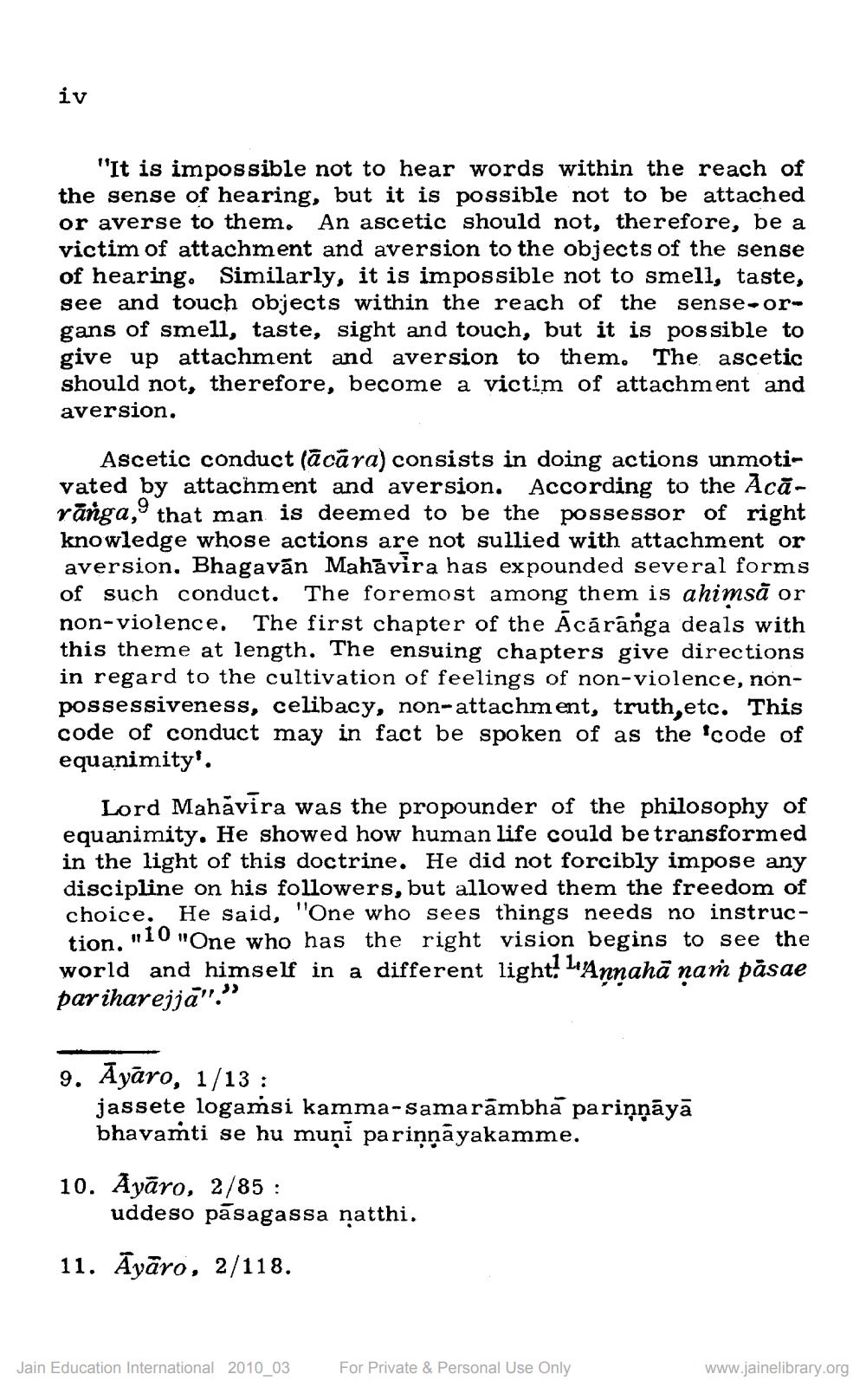________________
iv
"It is impossible not to hear words within the reach of the sense of hearing, but it is possible not to be attached or averse to them. An ascetic should not, therefore, be a victim of attachment and aversion to the objects of the sense of hearing. Similarly, it is impossible not to smell, taste, see and touch objects within the reach of the sense-organs of smell, taste, sight and touch, but it is possible to give up attachment and aversion to them. The ascetic should not, therefore, become a victim of attachment and aversion.
Ascetic conduct (ācāra) consists in doing actions unmotivated by attacnment and aversion. According to the Acā - rānga, that man is deemed to be the possessor of right knowledge whose actions are not sullied with attachment or aversion, Bhagavān Mahāvira has expounded several forms of such conduct. The foremost among them is ahimsā or non-violence. The first chapter of the Acărânga deals with this theme at length. The ensuing chapters give directions in regard to the cultivation of feelings of non-violence, nonpossessiveness, celibacy, non-attachment, truth,etc. This code of conduct may in fact be spoken of as the 'code of equanimity'.
Lord Mahavira was the propounder of the philosophy of equanimity. He showed how human life could be transformed in the light of this doctrine. He did not forcibly impose any discipline on his followers, but allowed them the freedom of choice. He said, "One who sees things needs no instruction."10 "One who has the right vision begins to see the world and himself in a different light! l'Annahā naṁ pasae par iharejjā".")
9. Āyāro, 1/13 :
jassete logamsi kamma-Samarāmbhā pariņņāyā bhavaṁti se hu muni pariņņāyakamme.
10. Ayāro, 2/85 :
uddeso pāsagassa natthi.
11. Āyāro, 2/118.
Jain Education International 2010_03
For Private & Personal Use Only
www.jainelibrary.org




